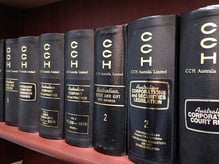 Professionals outside and inside the legal field complain about long and confusing documents. Everyone is occasionally guilty of looking at a lease agreement or a business contract with a bewildered expression while uttering the phrase, "Huh?"
Professionals outside and inside the legal field complain about long and confusing documents. Everyone is occasionally guilty of looking at a lease agreement or a business contract with a bewildered expression while uttering the phrase, "Huh?"
If you believe that the practice of writing legal documents as if they are boring court dockets from the 18th century must end, you are not alone. Even the US government agrees that we should write documents in plain English. The Plain Writing Act passed in 2010 requires federal agencies to write "clear Government communication that the public can understand and use." And it states that documents distributed to the public should be clear, concise, and well-organized.
If you don't write contracts or legally binding documents exclusively for the federal government, you should still always write in plain English for a multitude of reasons. Here are just a few:
- Writing legal documents in plain English will prevent uncertainty and misunderstandings.
- There will be less litigation because of misunderstood and unclear legal documents.
- When your company or organization creates easy-to-read legal documents, your credibility will be enhanced. If people can clearly understand what you are saying to them in an important document, they will trust you more.
- Readable and straightforward text prevents ambiguities and eliminates the need for extensive footnotes and dictionary terms, which makes your job as a writer a lot easier.
Below are tips for how you can write user-friendly legal documents that are clearer, more concise, and better organized.
Don’t Use Archaic Words
Sorry to be the bearer of bad news, but you aren’t living in an artistic Shakespearean world.
It’s time to delete all antiquated words like “whereby,” “thereto,” “hereupon,” and “notwithstanding” from your legal documents. Archaic words such as these no longer serve a purpose in legal documents, because they no longer serve a purpose on a day-to-day basis in the real world. They are just confusing and sound awkward.
Remove Idioms, Redundant Phrases, and Nominalizations
Remove wordy idioms. For instance, instead of writing “despite the fact that,” write “although.” And delete all redundant phrases such as “confessed and acknowledged” and “undertake and agree.”
Legal documents also tend to be overrun with nominalizations. A nominalization is just a verb or adjective that a writer turned into a noun. For instance, “he discovered” becomes “he made a discovery of,” and “the team implemented” becomes “the implementation of … by the team.” Nominalizations tend to accompany the passive voice, which is not desirable for clear and concise communication.
Use the Active Voice
Whenever possible, write in the active voice, not the passive voice. The active voice is more direct and less confusing, and usually requires fewer words to convey the same meaning. For example, “Mary was seen holding a knife by a witness” is less direct than “A witness saw Mary holding a knife.” The active voice also gives more information about the subject when the subject is known.
Organize Information in a Coherent Manner
Here are some tips for how to organize information in your legal document.
- Include a table of contents for long documents.
- Generate an outline that places related information or material together.
- Create short sections and subdivide longer ones in a logical sequence. For example, place more important information before less important information, and place general information before more specific information.
- Minimize cross-references.
- Include a topic sentence to summarize the main idea of each paragraph or series of paragraphs about the same topic.
- Use transitions to link ideas and to introduce new ideas.
Practice Using Plain Language
To help you write legal documents in plain English, you can complete exercises from Legal Writing in Plain English by Bryan A. Garner. The exercises teach legal writers how to create, organize, and edit legal text with straightforward and practical thinking.
Have Someone Outside the Legal Profession Review the Document
The best way to know if you’re writing in plain English is to have someone outside of the legal profession read what you wrote. If he or she gives you a blank stare, utters “huh?” and has more than one or two clarifying questions, you’ll probably need to rewrite it.




